Opinion
The 100 Works of Art That Defined the Decade, Ranked: Part 1
In the first installment of a four-part series, our critic reveals his picks—number 100 through number 76—of the key artworks of the 2010s.
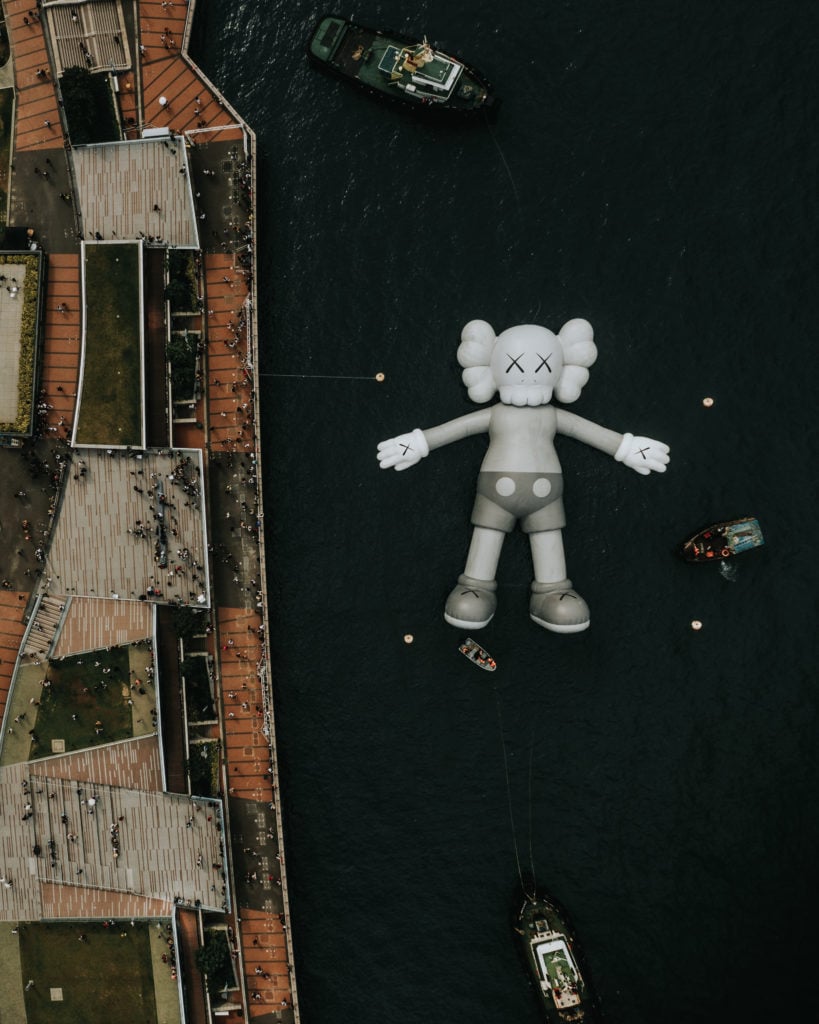
In the first installment of a four-part series, our critic reveals his picks—number 100 through number 76—of the key artworks of the 2010s.

Ben Davis

This is the first part of a series looking at the art of the 2010s. The other parts are here, here, and here.
“Best of” lists are always at least half frauds. After all, no one can really see all the movies or read all the books in a year, let alone a decade—but at least film critics or literature critics are debating things that offer the same experience no matter where you are. The nature of art means that the exercise is extra arbitrary. A really successful work of art might travel to different museums, but it also might not. So you are left either taking someone else’s word for what was good or leaving out important touchstones.
If you were to map out the geography of the works I mention below, it would look like a target, with most of the darts falling right around where I live, New York. The distribution of hits would then scatter out from the bullseye, landing at more and more random points the farther they get. You really feel your own limitations when you try to put together a list like this.
Nevertheless, I think there’s some interest in picking out not just artists or general trends, but specific artworks. I find it’s hard to do that, which is exactly why it’s worth doing—to take note of specific images or ideas that appeared this decade and that particularly stuck, even if not everyone is going to agree on how exactly to value them.
Still, I’m left facing my own limitations. Just picking personal favorites leaves out a lot that was objectively influential, but pretending it’s some kind of objective “Greatest Hits” leaves you just measuring raw popularity (in which case, Wall Street’s Fearless Girl would be #1).
So I thought of five measures by which I might estimate artworks’ importance: by originality/invention (the degree to which they introduced something new to the conversation); form/style (how memorable they were as a specific image or idea); depth/nuance (whether coming back to them was rewarding, or revealed new layers); symbolic power (the degree to which they seemed to stand as symbol of some bigger conversation, moment, or emergent cultural sensibility); and popularity/influence (how big a deal they were, either to other artists or to the wider public).
Combing back through a decade’s worth of seeing, reading about, and writing about art, and squinting at it through the lenses of these five categories, I came up with a list of artworks that balance between these values, converging toward works that fire on most cylinders at the top. (I didn’t want to repeat artists, because that made the list more boring.)
Starting at the end, then, here is one way to look at the 2010s in art.
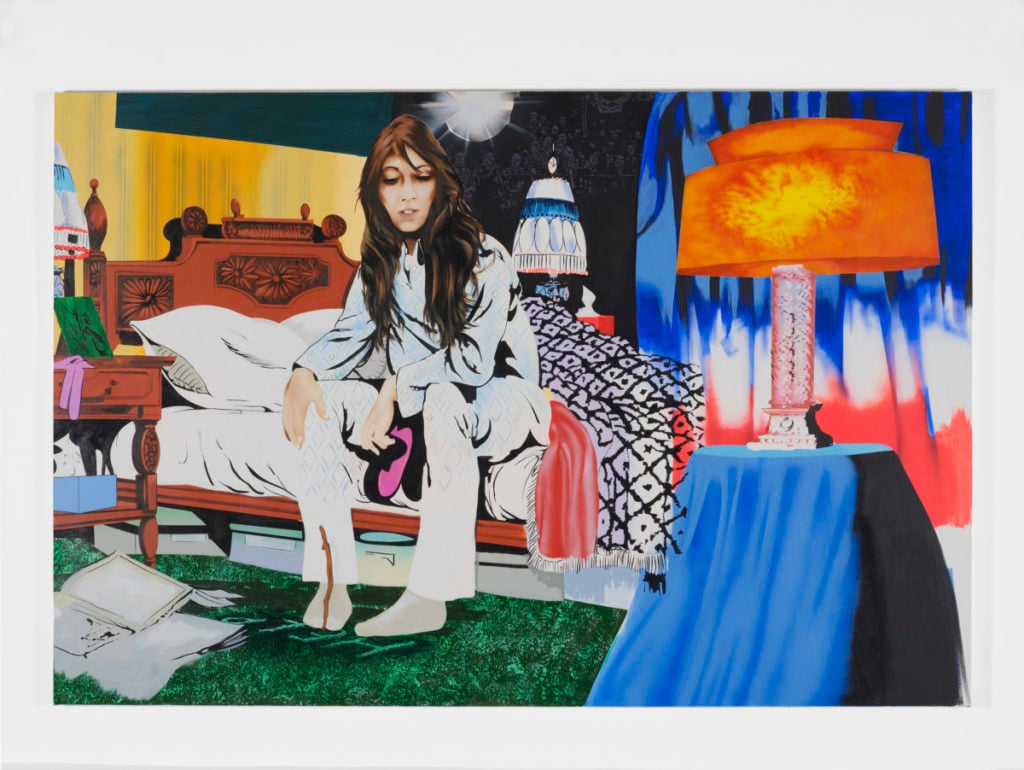
Jamian Juliano-Villani, Stick Drawing for Help (2016). Image courtesy of the artist.
A self-portrait by one of the premier painters of present-day internet-fried figuration nicely captures the affect of being cut adrift in an everyday world transformed into a simulation of itself.
A fun riff on the strange fix of geopolitics: the Ho Chi Minh City-based art collective works with an actual advertising company, filming their attempt to come up with a new “public image” for the notion of state Communism. The resulting brainstorming sessions are shown as an installation, plus this final, cheerful spot, which shows the thin line between corporate treacle and totalitarian propaganda.
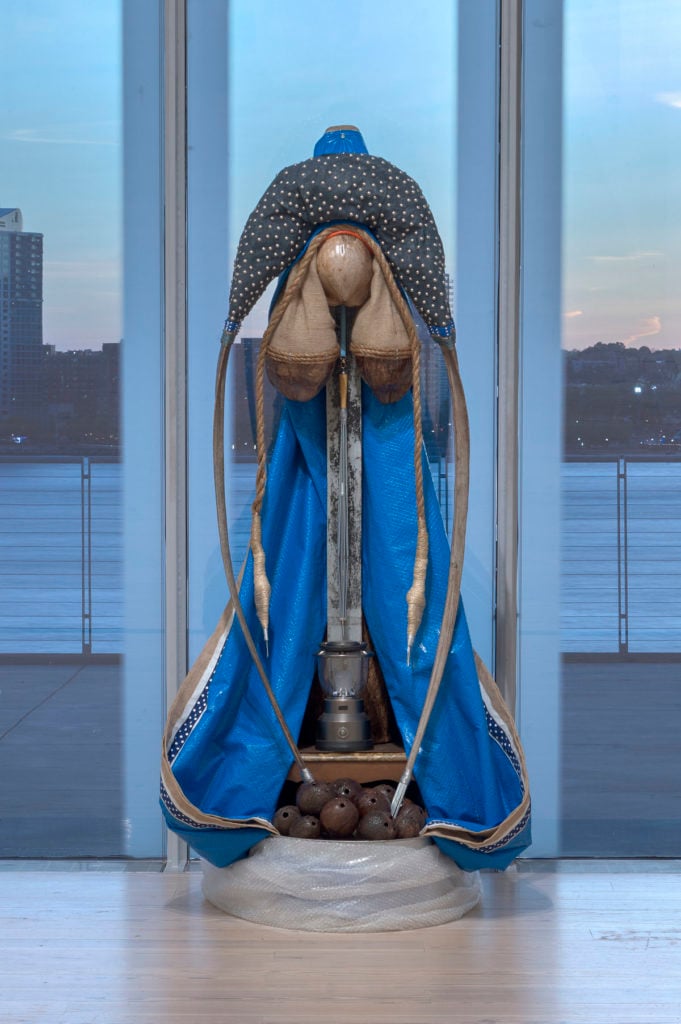
Daniel Lind-Ramos, Maria-Maria (2019). Image courtesy of Whitney Museum of American Art.
Puerto Rican sculptor Lind-Ramos’s assemblage for the Whitney Biennial 2019 incorporated blue disaster relief tarps from the wake of the devastating Hurricane Maria, drawing the comparison with the blue vestments of the Virgin Mary to build this ambiguous but expressive altarpiece. For me, Maria-Maria also represents a kind of healing, totemic use of materials that has become more general.
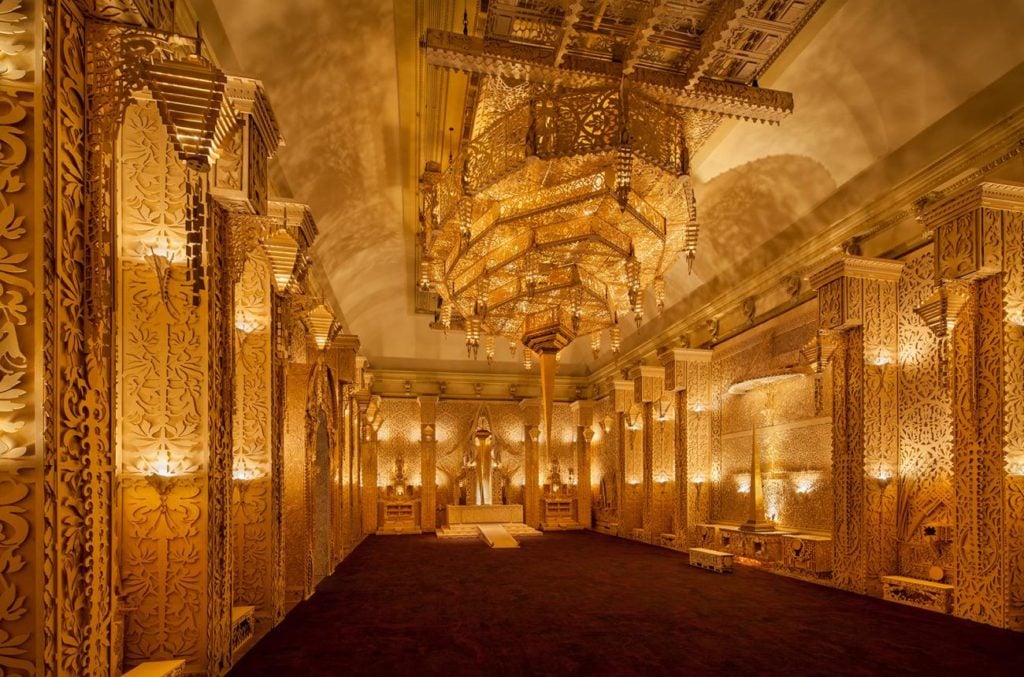
David Best, Temple (2018). Photo by Ron Blunt, courtesy Smithsonian American Art Museum.
Burning Man, the desert alt-culture bacchanalia, moved unstoppably into the mainstream this decade (and also, in its way, became just as associated with rich-guy ostentation as the mainstream art fair circuit). The Renwick’s “No Spectators” marked the apotheosis of the trend, and David Best’s intricate and ephemeral temple, a recreation of a shrine staged each year where people bring notes representing their sorrows to be burned at festival’s end, stands for the best of it.

Ana Teresa Fernández performing Borrando la Frontera. Image courtesy of the artist.
On October 13, 2011, Fernández and a group of volunteers teamed up to paint a 50-foot stretch of the US/Mexico border fence blue, highlighting the barrier by erasing it. A ambitious, poetically simple gesture—but given the enormous weight the border has taken on in the public discourse since, one whose weight has only grown with time.
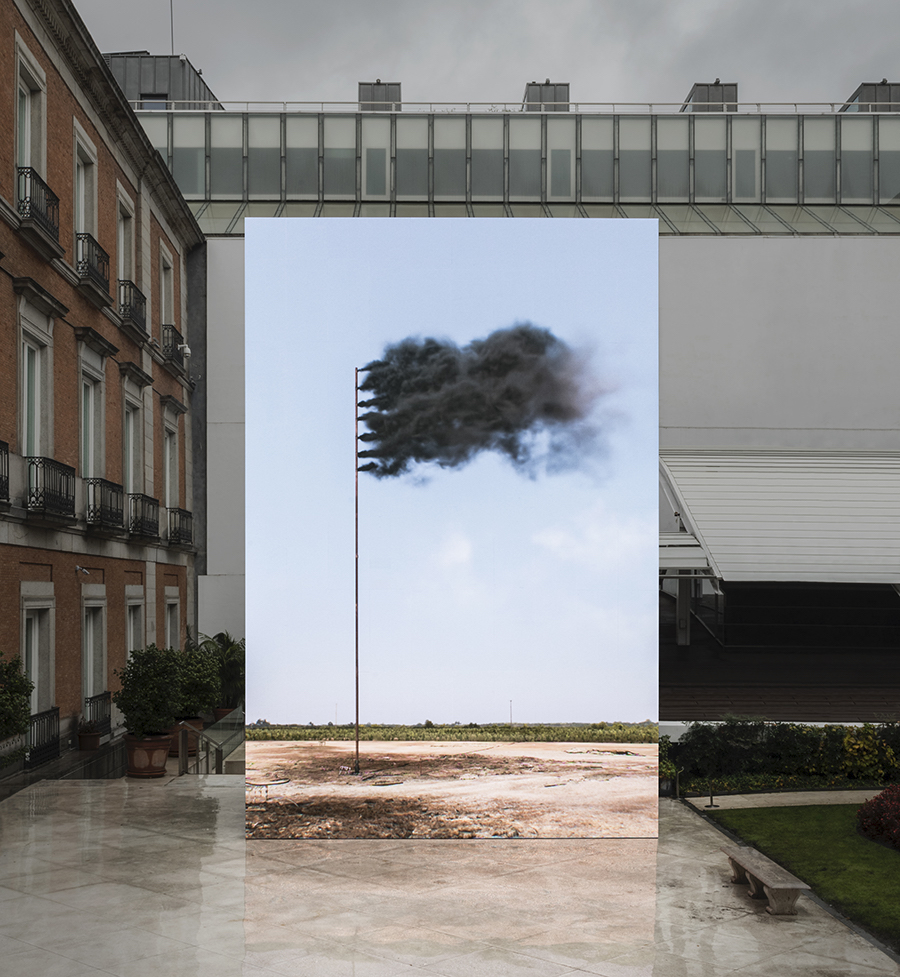
John Gerrard, Western Flag (Spindletop, Texas) (2017). Photo: Roberto Ruiz. Image courtesy Museo Nacional Thyssen-Bornemisza.
Originally commissioned for Earth Day (and seen recently at the Museo Nacional Thyssen-Bornemisza during the failed COP25 in Madrid), Gerrard’s animation presents an image of an impossible flag of oily black smoke, planted into the moonlit ground of Spindletop, Texas, site of the first major oil gusher.
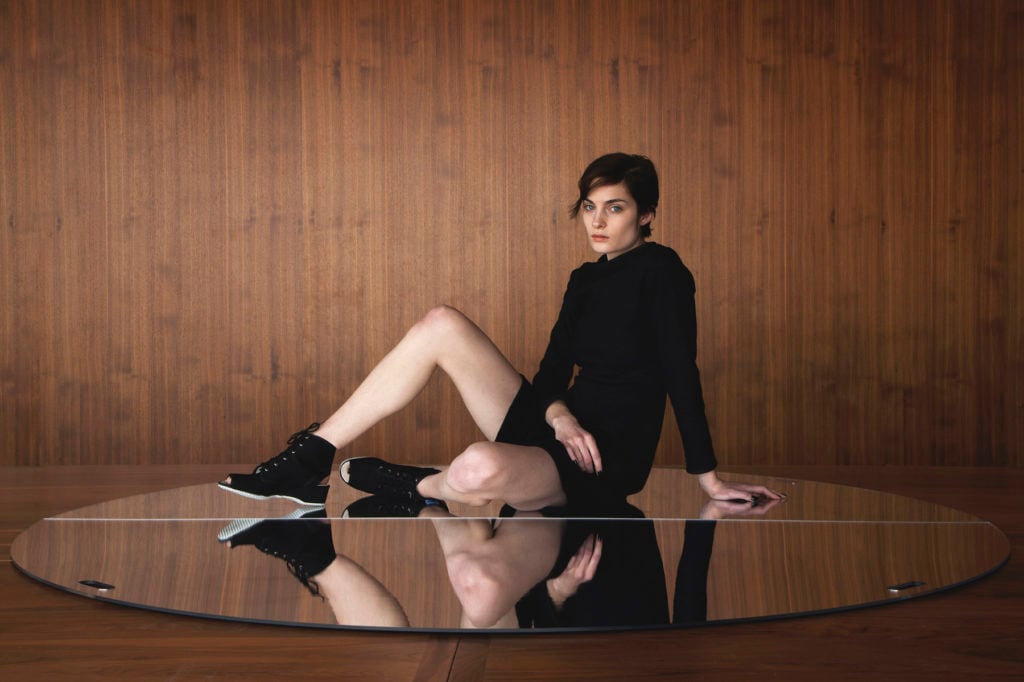
Irena Haiduk, Nina House Delay: Amelia Pool Working, desktop background. (2013). Image courtesy documenta 14.
This is a complex one, but stands for a way that the disorienting expansion of conceptual art mirrors the disorienting rewiring of economies and ideologies: In 2015, the Belgrade-born Irena Haiduk created Yugoexport, a conceptual-art company, and she has actually revived the “Borosana Labor Shoe,” an ergonomically designed shoe manufactured in the former Yugoslavia designed to be comfortable for working women who had to be on their feet all day. For each iteration of this work, the “Borosana Labor Shoe” is made available to the workers at any art institution where the work is shown. (You can also buy them online.)
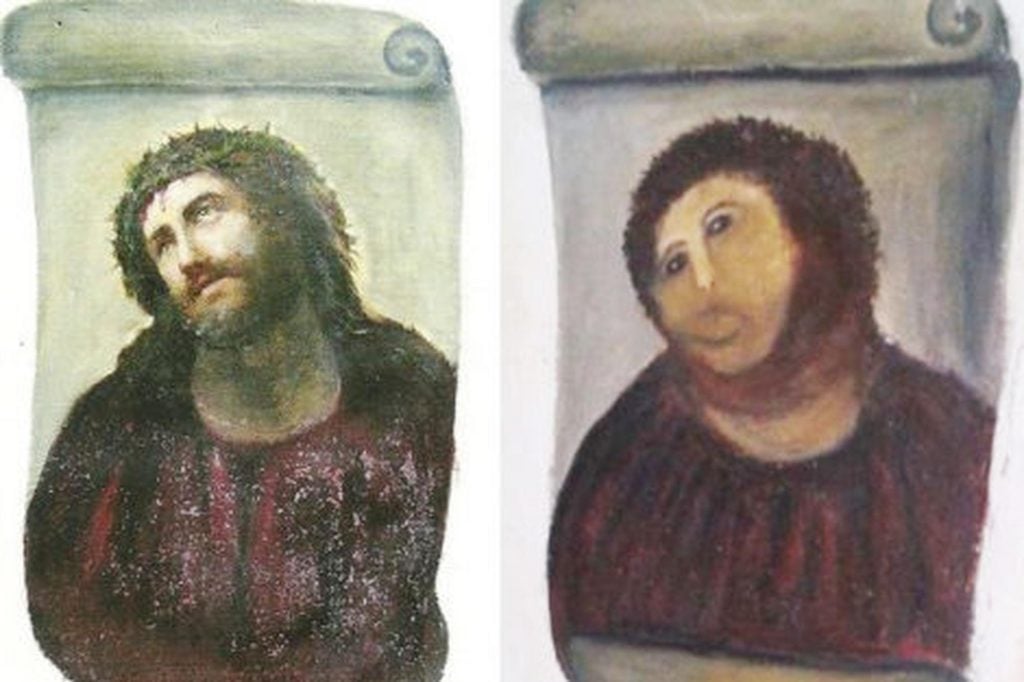
Elías García Martínez, restored by Cecilia Giménez, Ecce Homo (ca. 1930/2012).
Laugh if you want, but no tale of art in the 2010s is complete without the beloved masterpiece of unintentional surrealism. When then 81-year-old retiree Cecilia Giménez sought to pitch in on restoration work for a relatively minor depiction of Jesus at her village chapel by Elías García Martínez (1858–1934), she created something much bigger than herself, probably much bigger than almost any conventional artwork. “Beast Jesus” or “Monkey Christ” spawned endless delight and brought visitors from faraway lands to see the reborn Ecce Homo. Call it a miracle.
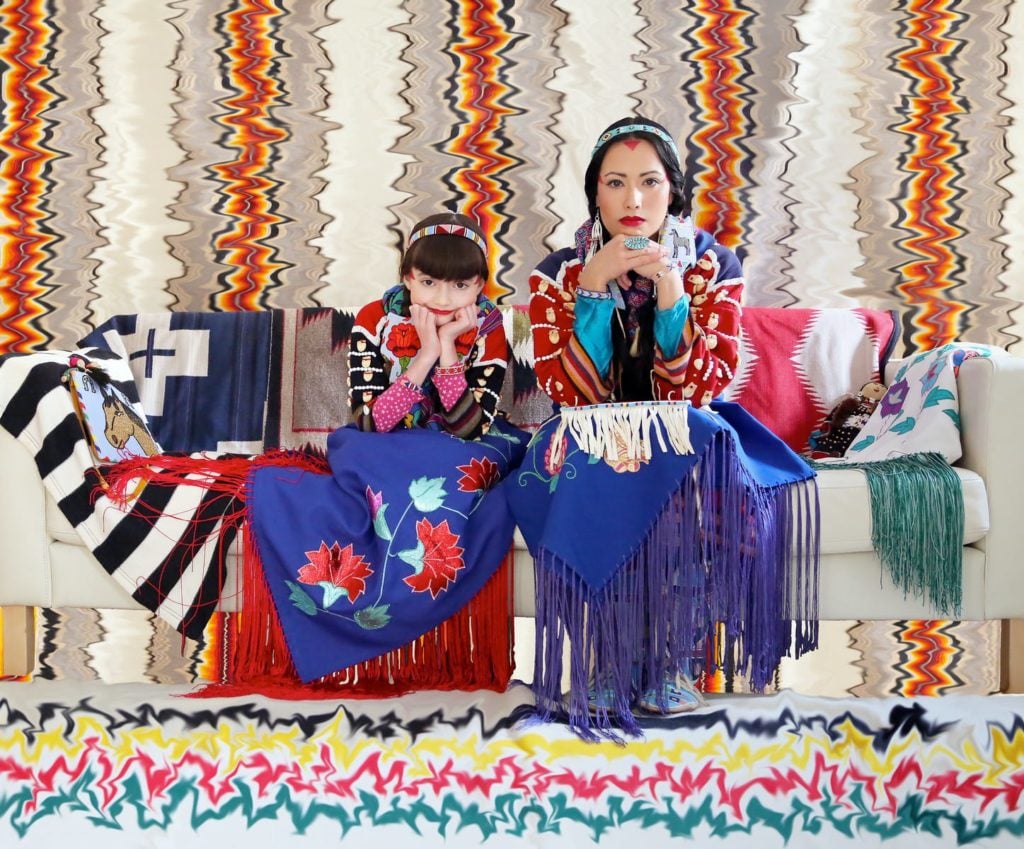
Wendy Red Star, Apsáalooke Feminist #2, featuring Wendy Red Star with daughter Beatrice Red Star Fletcher (2016).
Red Star’s “Apsáalooke Feminist” series features herself and her nine-year-old daughter, Beatrice Red Star Fletcher. It’s both loaded up with traditional signifiers and vivid Photoshop abstractions, a vibrant declaration of holding onto indigenous identity and freeing it from stereotypes with creative verve all at once—and teaching that spirit.
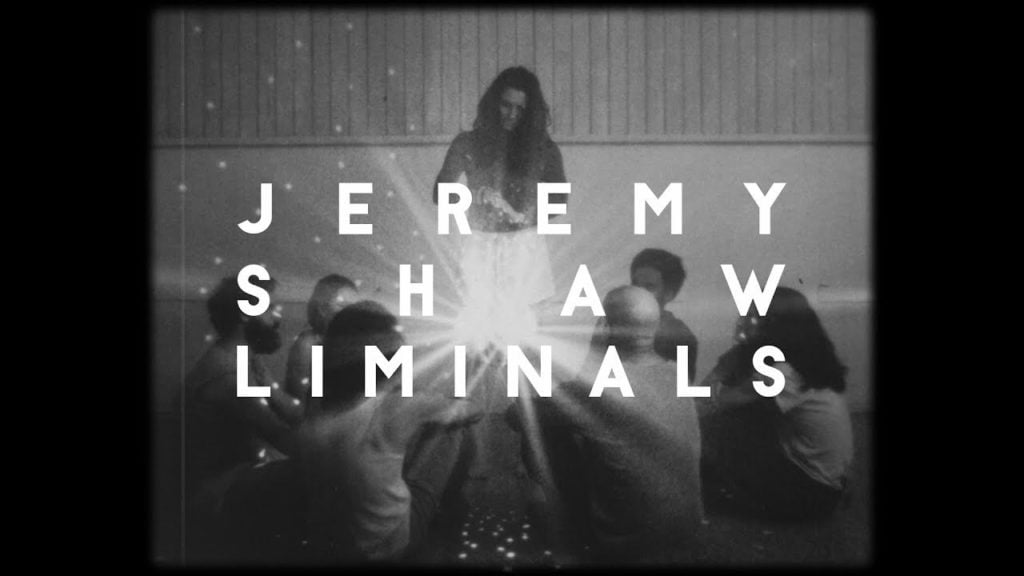
Title image from Jeremy Shaw’s Liminals.
Seen at Christine Macel’s “Arte Viva Arte” Venice Biennale in 2017, Canadian artist Jeremy Shaw’s fake documentary Liminals was my highlight from that show. It presents a future where people turn increasingly to irrationalism and cult rituals in the face of societal collapse. I think of it a lot actually.
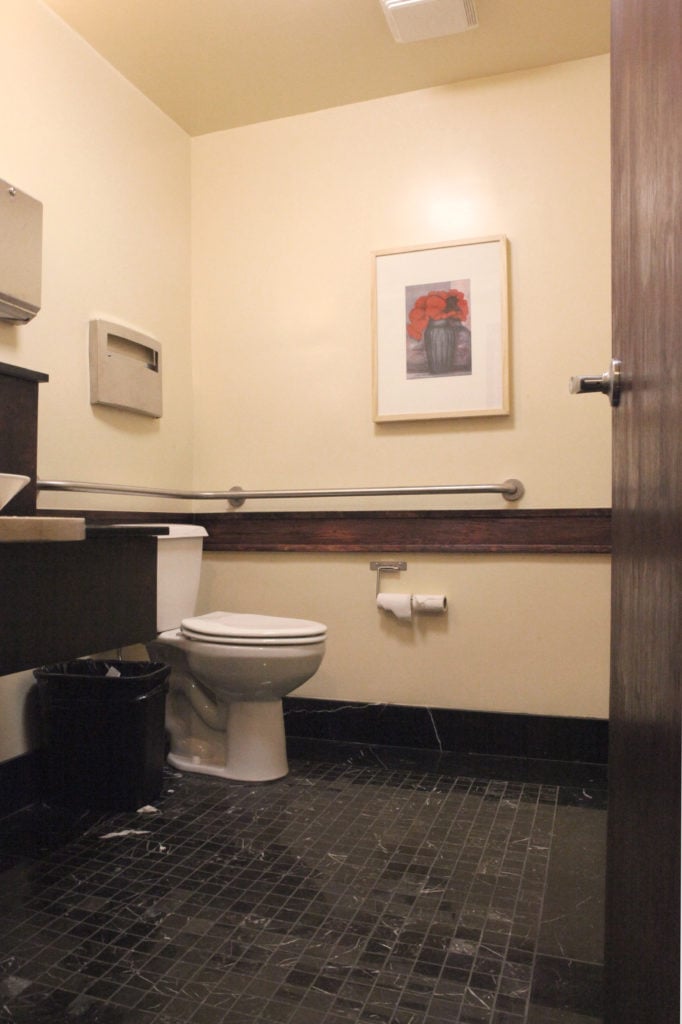
Superflex, Power Toilets (2011). Image courtesy Superflex.
Installed at a diner on Delancey Street in New York, and billed as a fully functional re-creation of the executive loo at JPMorgan Chase, the installation nailed a certain enflamed awareness of inequality in a decade defined by the fallout from the Great Recession (and appeared on the cusp of the conversation-shifting explosion of Occupy Wall Street).
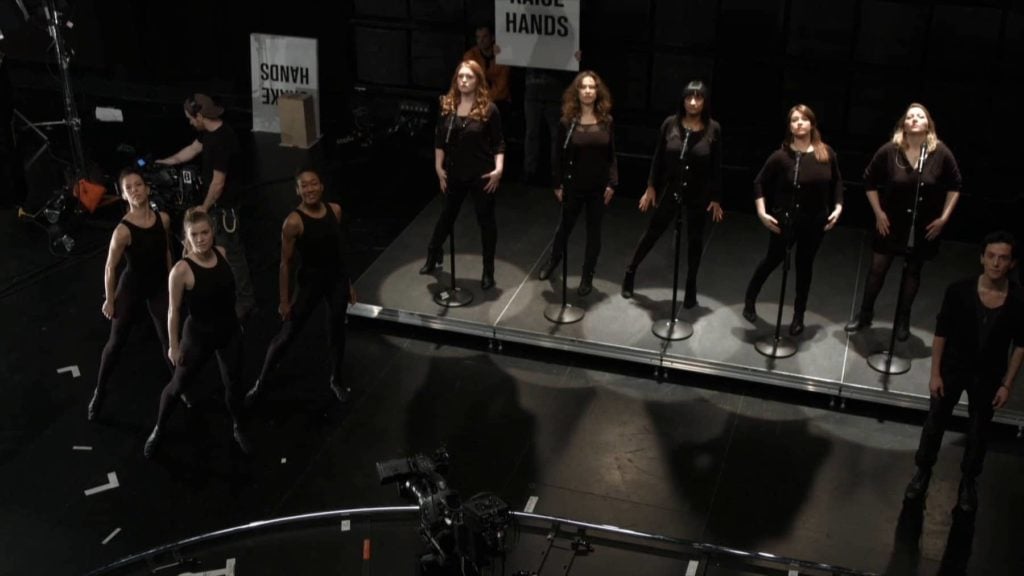
Performers staging And You Were Wonderful, On Stage at EMPAC. Image courtesy EMPAC.
Spooner’s opus, a choral musical about the changing nature of celebrity and the increasing displacement of in-person experience by various kinds of mediation, had many lives, touring and becoming a video installation of the same name. All of which shows how it nails the sense of a present-day, mutating consciousness.
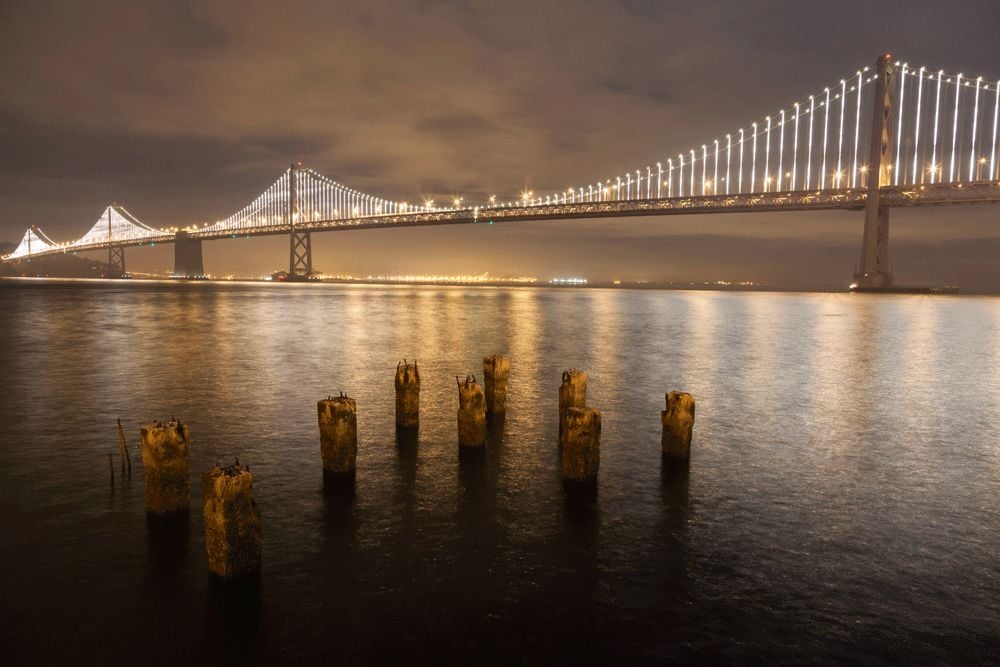
Leo Villareal, The Bay Lights (2013), on the San Francisco Oakland Bay Bridge at night with reflections in the water during an early test of the artwork. Photo by Almonroth, Creative Commons Attribution-Share Alike 3.0 Unported license.
Claiming to be the largest light-based artwork around, Villareal’s animated collection of 25,000 twinkling LED lights on the Bay Bridge in San Francisco started as a temporary installation in 2013, but was popular enough that it returned as a permanent feature in 2016.
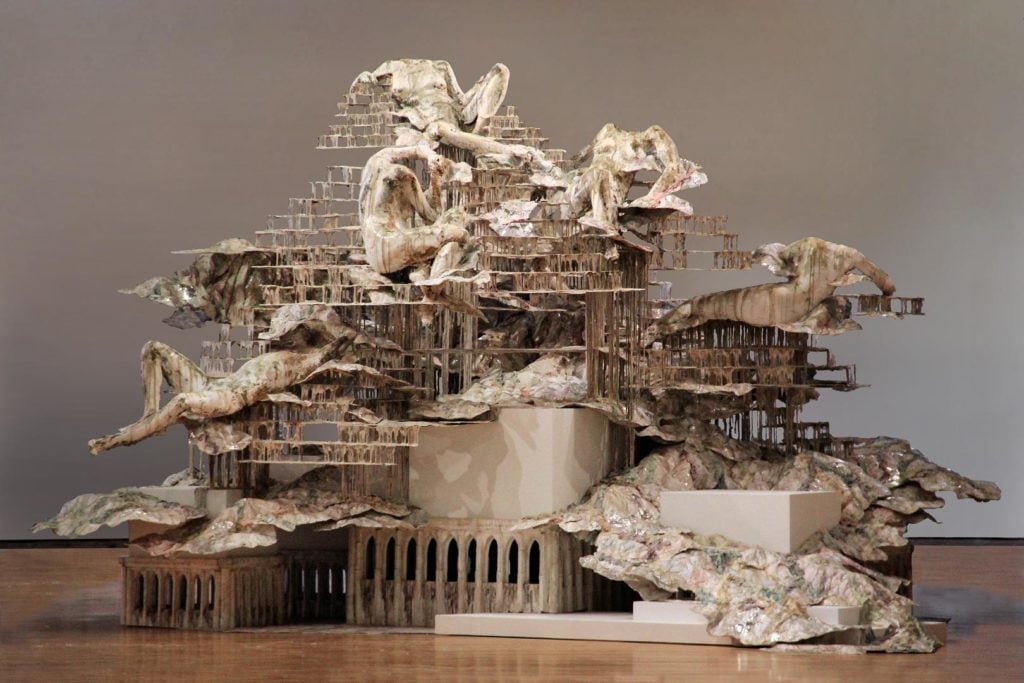
Diana Al-Hadid, Nolli’s Orders (2012). Photo by Meli Harvey, courtesy of the artist.
First seen at Mass MOCA in 2012, Al-Hadid’s room-sized sculptural folly is an anthological, scale-shifting mass of references to antique architecture and Mannerist painting.
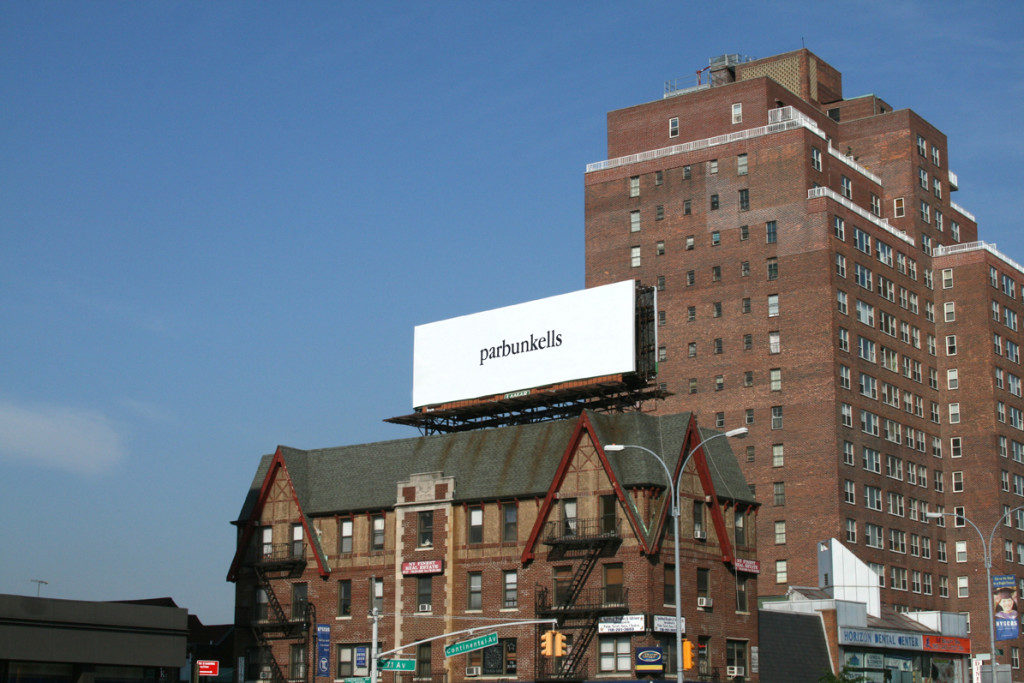
Julia Weist, Reach
(2015). Image courtesy the artist.
In premise, Weist’s work is simple enough: a billboard in Queens featuring an arcane word, “parbunkells,” that had exactly zero Google search results before, plus a lamp in her apartment that was rigged to light up whenever the word was searched. The resulting viral explosion shows that Reach distilled a certain feature of the attention economy down to its fundamentals.
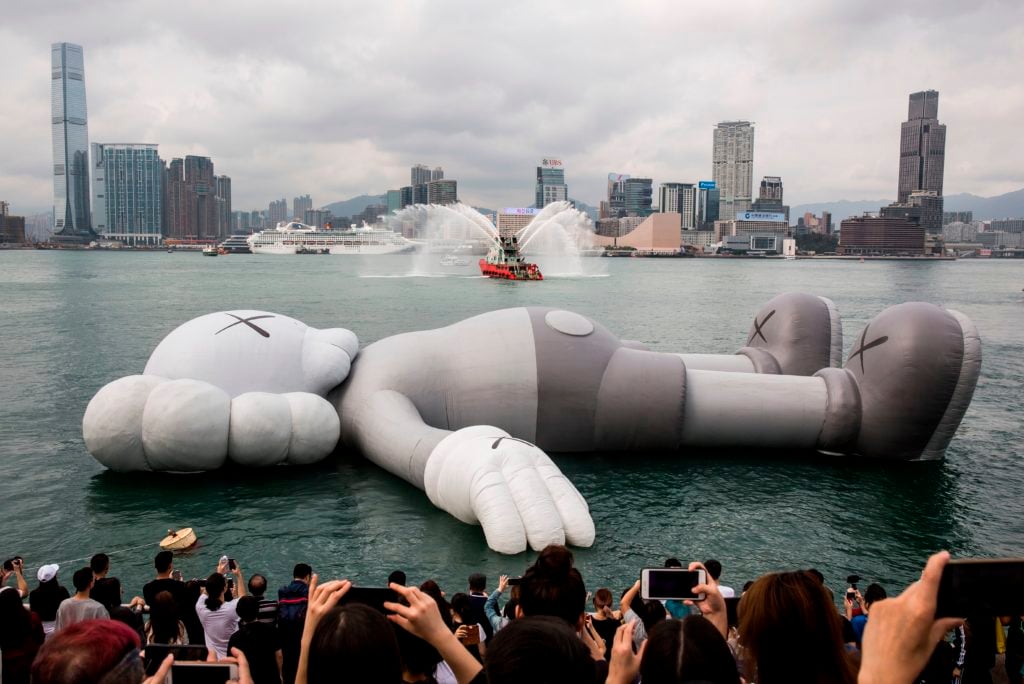
KAWS’s Companion at Victoria Harbor, Hong Kong. Photo: Isaac Lawrence//AFP/Getty Images.
You may have tried to ignore the KAWS phenomenon, but the former street artist and vinyl-figure entrepreneur was one of the unstoppable success stories of the decade. He just got bigger and bigger until it was impossible to ignore him, and his signature “Companion” character was literally 115 feet long, 40 tons, and floating in Hong Kong harbor.
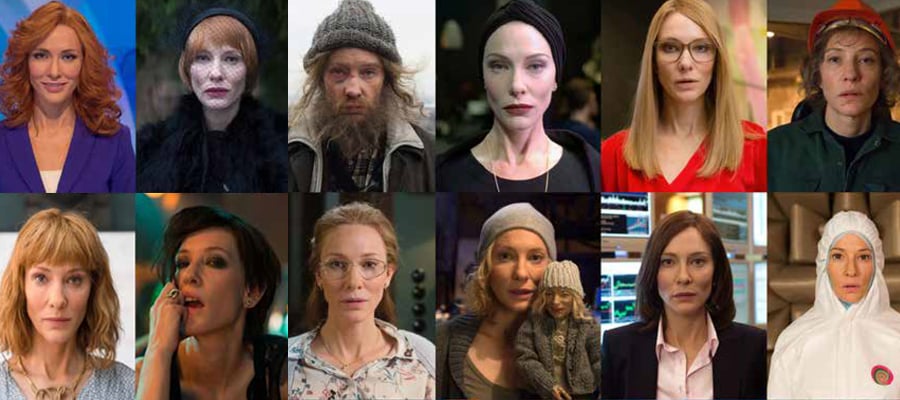
Julian Rosefeldt, Manifesto (2015), film stills featuring Cate Blanchett. Courtesy Julian Rosefeldt and VG Bild-Kunst, Bonn.
Rosefeldt’s ambitious, multi-screen installation restaging the cardinal modernist manifestos as campy bits of present-day drama is funny and strange, both distancing you from their original meaning and reconnecting you with it. Plus, every single one is read by actress Cate Blanchett, who’s having a lot of fun. The celebrity presence was organic to the meaning of the work in that it suggested that all the different, life-altering possibilities offered by modern art, to a contemporary audience, are accessible mainly as theatrical gestures.
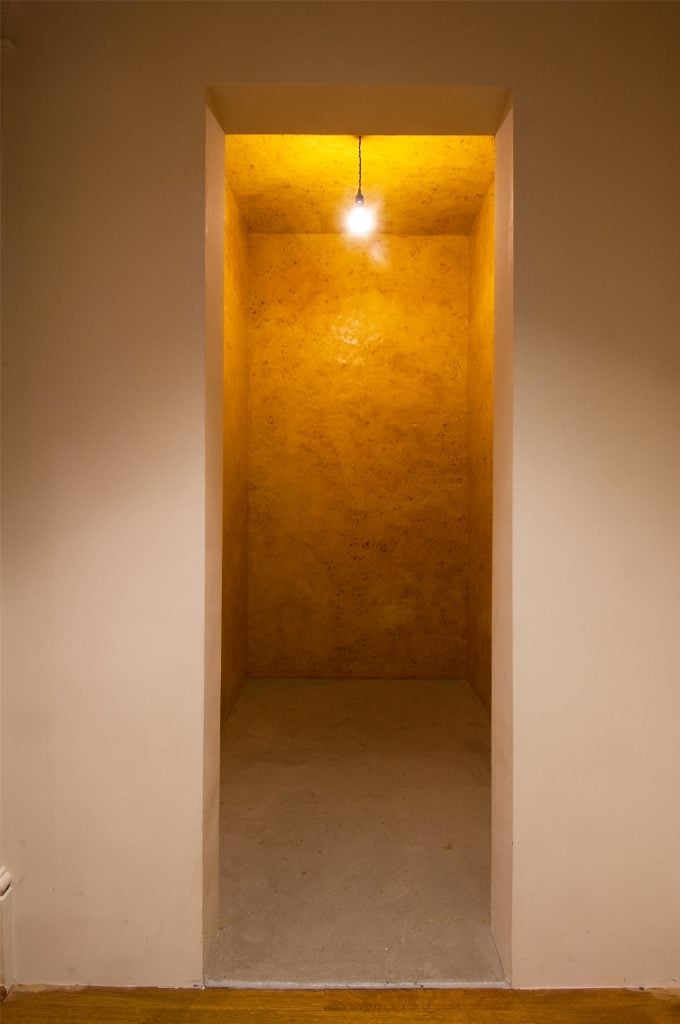
Wolfgang Laib, Wax Room (Where have you gone–where are you going?) (2013). Photo: Lee Stalsworth. Image courtesy the Phillips Collection.
Promoting an intense sense of place and focus on materials within its intimate confines, this, the German artist’s first permanent wax room installed in a museum and the Phillips’s first new permanent installation since its Rothko Room, is worth the pilgrimage.
The new realities of digital life and how they interact with labor, racism, aesthetics, and sense of self were major themes of the 2010s. For me, Perry’s disorienting, disoriented IT’S IN THE GAME, which was commissioned by Oslo’s Henie Onstad Kunstesenter and the Institute of Contemporary Art at the University of Pennsylvania, is a go-to reference drawing together all of that, partly because it is such a personal take on the subject, dealing with how her brother’s image was hijacked for a basketball video game.
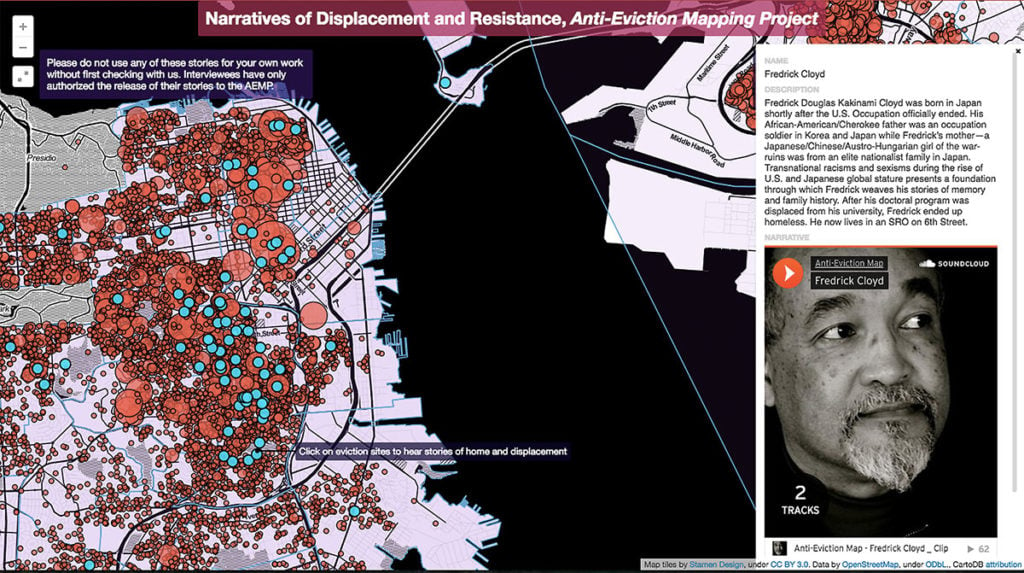
Screenshot from Anti-Eviction Mapping Project’s Narratives of Displacement and Resistance initiative.
Since 2012, the Bay Area’s AEMP has doggedly used data-visualization, storytelling, and “countercartography” to record the impact of predatory landlords, police violence, and displacement in San Francisco and beyond. This 2016 initiative gives a literal overview of the breadth of evictions in the hyper-gentrified city—while also creating an archive of the human stories behind them so that the stakes don’t get lost in the data.
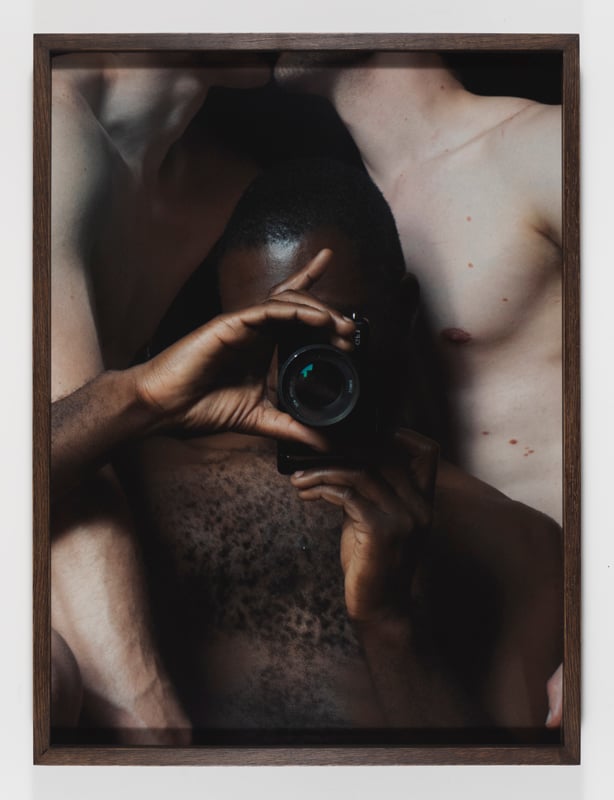
Paul Mpagi Sepuya, Darkroom Mirror Portrait (_2060194), 2017. Courtesy of the artist and Team Gallery.
Sepuya’s “Darkroom Mirror” series of photographic portraits was made collaboratively in the studio with friends and intimates, as if to both present a sense of queer intimacy and to queer ideas of authorship at the same time, letting it blur into something slightly less fixed and conventional.
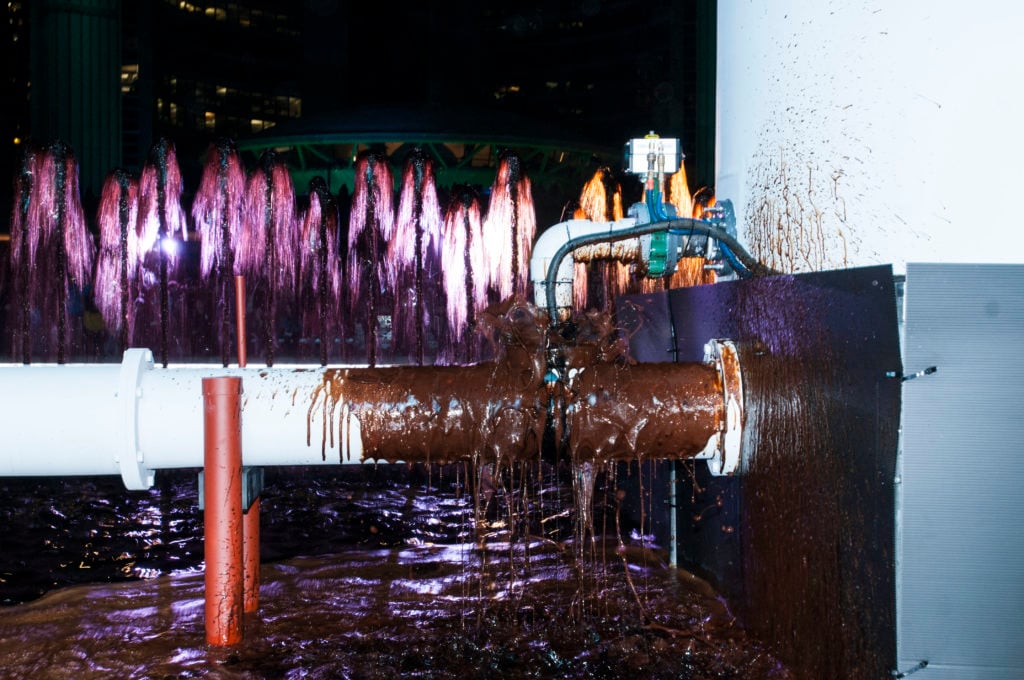
Image of Critical Art Ensemble’s A Temporary Monument to North American Energy Security (2014) during Nuit Blanche. Image courtesy Critical Art Ensemble.
It begins as an anodyne piece of corporate PR for “CanAmerican Energy,” beaming out over the fountain at Toronto’s City Hall. It evolves into something else as a pipeline set up as part of the show bursts, flooding into the water. It ends with a Hazmat team arriving to investigate. The message is pretty clear.

Still from Amalia Ulman’s “Excellences & Perfections” via Instagram.
Ulman’s fabulated social-media parable, described as “an extreme, semi-fictionalized makeover” but really more of a plumbing of the depths of aspirational basic-ness and the Instagram audience’s hunger for drama, has become the go-to reference for “Instagram art” as a genre of performance.
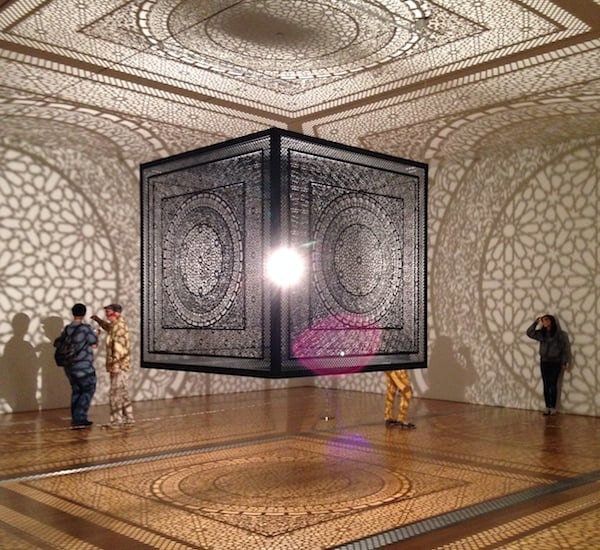
Anila Quayyum Agha, Intersections (2014) installed at the Grand Rapids Art Museum, as part of its 2014 ArtPrize exhibition. Photo: Cait Munro.
Emerging from the Grand Rapids-based ArtPrize in 2014, where it both won a popular vote for best in show and split the critic’s vote—a convergence that’s as rare as a solar eclipse—Agha’s intricate lantern sculpture was inspired by the majesty of the Alhambra in Granada. It also emerged from her reflection on how women were excluded from the inspirational spaces of the mosque during her childhood in Lahore—giving its particularly accessible beauty a kind of mission as representing a sense of the wondrous that is meant to be shared widely.
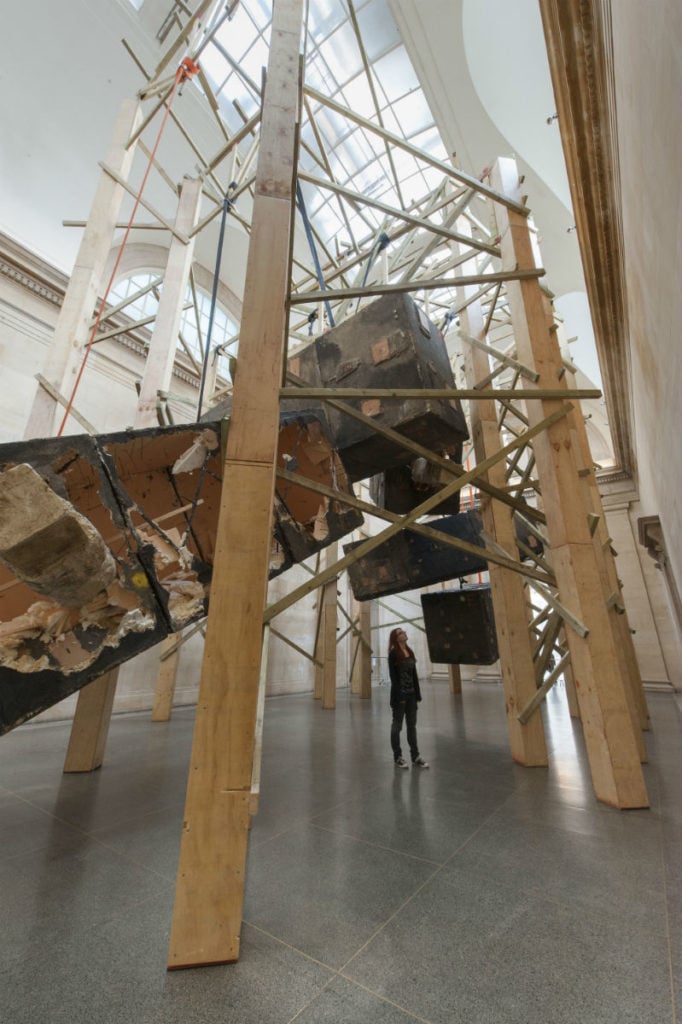
Installation view of Phyllida Barlow, dock at Tate Britain 2014
. Photo by J Fernandes, Tate Photography.
Barlow’s ambitious, explosive, joyous sculpture-mess-environment responding to the Tate Britain’s austere Duveen Hall was a symphony of anti-monumentality that gave her decades of formal experimentation room to coalesce into something memorable (she was named CBE the next year).